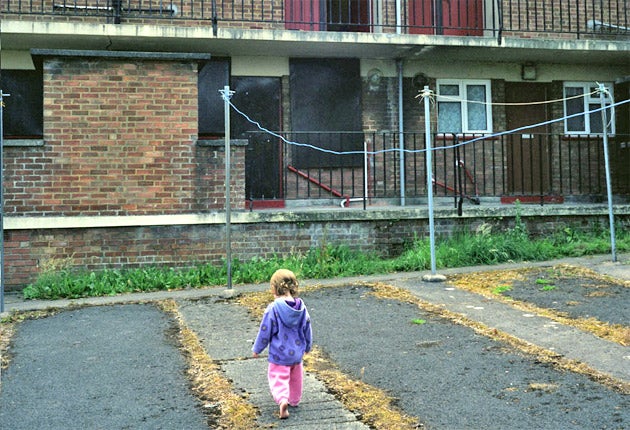Child poverty 'will rise as cuts hit families'

The row over the Government's "progressive" credentials and the fairness of the emergency Budget is blown open today with new research from the respected Institute for Fiscal Studies.
The IFS's study of the effects of the June Budget, drawing on evidence published by the Department for Work and Pensions, suggests that the Prime Minister's and the Chancellor's claims that the Budget would not increase child poverty are wrong. Research commissioned from the IFS by the End Child Poverty campaign shows that the group that George Osborne's Budget will hit hardest are the poorest families with children, who face a loss of just over 5 per cent of their income by 2014. Families with children lose more than pensioners or other household types in all except the top-three income groups.
The Treasury has argued that an increase in the child tax credit will help protect the most vulnerable and prevent child poverty rising, but in its analyses it did not include the effects of wider benefit changes, such as restrictions on housing benefit. The IFS's work has attempted to do that, and has revealed a less favourable picture.
James Browne, senior research economist with the IFS and co-author of the report, said: "It seems likely that, once changes to other benefits are taken into account, child poverty will go up."
The IFS report is especially embarrassing for Nick Clegg, who is "holding the fort" in the Prime Minister's absence, and who has insisted on the Coalition being a "progressive" force.
The Treasury Select Committee last month asked the Chancellor to provide a wider analysis of the redistributive effects of the Budget, but this has not been forthcoming as yet.
In his Budget statement, the Chancellor declared that "the policies in this Budget, taken together, will not increase measured child poverty over the next two years" and that "overall, everyone will pay something, but the people at the bottom of the income scale will pay proportionately less than the people at the top. It is a progressive Budget."
David Cameron added: "We are absolutely committed to meeting the child poverty targets. This Budget, despite all its difficulties, does not add a single family to child poverty."
The Coalition has adopted the outgoing Labour government's goal of eliminating child poverty by 2020.
A spokesperson for the Treasury rejected the IFS claim: "It is selective, ignoring the pro-growth and employment effects of Budget measures such as helping households move from benefits into work, and reductions in corporation tax."
Politically, the argument over child poverty will add to the fierce debate within Government departments and between the coalition parties on welfare reform. For Liberal Democrat grassroots critics, it will be taken as further evidence that Liberal Democrat ministers, such as the Chief Secretary to the Treasury Danny Alexander and the Pensions Minister Steve Webb, are conceding too much.
It may also widen the open split between George Osborne and Iain Duncan Smith. Mr Duncan Smith is reported to have toyed with the idea of resignation. Pensioners' winter fuel allowance is another looming political flashpoint.
Case study: 'They should help us. Children are so very expensive'
Jo Wilson
Mrs Wilson, 27, lives in Nottinghamshire with her husband Chris, 31, an electrician, and their three children Cameron, 7, Daisy, 5, and Beth, 2.
"My husband works full-time as an electrician and earns about £36,000 a year. Some people will say that's good money and we should manage on that, but when you've got three children, a house and a car it doesn't go very far.
We currently get £132 a month in child benefit and £37 a month in child tax credits. The child benefit enables us to buy some things for the children.
Our child tax credits have recently gone down from £40 a month to £37 because my husband started earning a bit more. But from 2012 we probably won't even get this because of the cuts. It may not sound a lot but it's nice to know it's coming as it means I can buy a couple of pairs of shoes for the children.
The rise in VAT will also be very bad for us. It will be a big jump with everything being more expensive just at a time when money will be tighter.
I do think they should have done more to protect families with young children. Young children are so very expensive."
Join our commenting forum
Join thought-provoking conversations, follow other Independent readers and see their replies
Comments
Bookmark popover
Removed from bookmarks